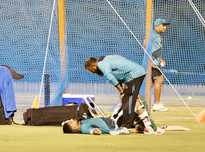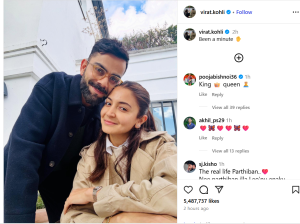Festivals and celebrations often bring joy, laughter, and fireworks, but for dogs, those loud cracker noises can be terrifying. Their sensitive hearing makes sudden sounds feel overwhelming, leading to anxiety, restlessness, or even panic attacks. Protecting your furry friend from these distressing noises isn’t just about comfort; it’s about their safety and well-being. From creating a peaceful environment to using desensitisation techniques, there are several ways to help your dog feel calm and secure during noisy occasions. Let’s explore effective, vet-approved methods to reduce your dog’s fear and ensure a stress-free festive season.
10 tips to keep your dog relaxed and safe during fireworks
1. Create a safe and quiet space indoorsDesignate a calm area in your home where your dog feels secure. Choose a room away from windows and external noise, like a bedroom or bathroom, and make it cosy with soft bedding, toys, and familiar scents. Keep curtains drawn and doors closed to block flashes and reduce sound. You can also play soothing music or white noise to mask the firecracker sounds. A well-prepared safe space can greatly reduce anxiety and make your dog feel protected during noisy celebrations.
2. Desensitise your dog to loud soundsStart preparing weeks before festival season by introducing your dog to low-level recordings of firework sounds.
Play them softly while engaging in positive activities such as feeding treats or playing with toys. Gradually increase the volume over several sessions. This desensitisation technique helps your dog associate loud noises with positive experiences instead of fear. Consistency is key; short, regular sessions are more effective than long, forced exposures.
3. Use calming aids and natural remediesSeveral safe calming aids can help reduce anxiety in dogs during fireworks. Always consult your vet before starting any treatment, especially if your dog is on medication. In severe cases, vets may prescribe mild sedatives or anti-anxiety medication to help your dog cope with the stress.
4. Muffle the noiseSince dogs find unpredictable booming noises threatening, muffling the sounds can make a huge difference. Close all windows and draw curtains to reduce outside noise and light flashes. Turn on soothing music, white noise, or even the TV at a moderate volume to mask the bangs.
If your dog prefers their crate, cover it with a thick blanket on the top, sides, and back to create a den-like space. Make sure it’s still ventilated, and your dog can leave if they choose. This setup reduces sound intensity and helps them feel protected.
5. Stay calm and reassure your dogDogs pick up on their owner’s emotions. If you stay calm and composed, your dog is more likely to feel reassured. Speak in a soft, soothing tone and offer gentle physical contact if your dog seeks comfort. Avoid overreacting to the noise or scolding fearful behaviour, as this can worsen their anxiety. Instead, reward calm behaviour with praise or treats, this reinforces the idea that there’s nothing to fear.
6. Avoid taking your dog outside during fireworksNever take your dog outdoors during fireworks or cracker displays. The loud noises and bright flashes can startle them, causing them to bolt, hide, or even get injured. Ensure doors, gates, and windows are securely closed to prevent escape. Take your dog for an early evening walk before the festivities begin, and keep them safely indoors once the noises start.
7. Try sound masking and distraction techniquesBackground sounds like gentle music, television, or a fan can help drown out the intensity of crackers. Interactive toys, treat puzzles, or chew bones can distract your dog and redirect their focus away from the noise. Frozen treats or stuffed Kongs can keep them engaged for longer, helping reduce anxiety through mental stimulation.
8. Keep identification and microchip updatedEven with precautions, frightened dogs sometimes escape during loud events. Make sure your dog’s ID tag and microchip details are up to date with your current contact information. This ensures they can be quickly reunited with you if they go missing. Consider using a GPS tracker on their collar during festive periods for extra peace of mind.
9. Consult a veterinarian or animal behaviouristIf your dog’s fear is severe, involving panic, self-injury, or uncontrollable shaking, consult a veterinarian or certified animal behaviourist. They can assess your dog’s anxiety level and recommend tailored behaviour modification techniques or medical support. Professional guidance can make a world of difference in managing chronic noise phobia.
10. Plan for future celebrationsPrepare early before events like Diwali, Bonfire Night, or New Year’s Eve. Gradual training, proper nutrition, and consistent comfort routines throughout the year can help your dog stay resilient. Encourage neighbours and local communities to use silent fireworks or minimise cracker use to create a pet-friendly environment.
Discover what drives your weight management journey. Take the survey Now.
 Abhishek fine, Hardik to be assessed on Saturday: Morkel
Abhishek fine, Hardik to be assessed on Saturday: Morkel
 MCA felicitates Jay Shah
MCA felicitates Jay Shah
 Razzak resigns as selector to contest BCB elections
Razzak resigns as selector to contest BCB elections
 Dubai Police stern warning to fans ahead of India-Pakistan Asia Cup final: Strict rules, banned items, Rs 7 lakh fine, jail penalties!
Dubai Police stern warning to fans ahead of India-Pakistan Asia Cup final: Strict rules, banned items, Rs 7 lakh fine, jail penalties!
 Electoral officer rejects objections on Harbhajan, Shukla, Bhat nominations
Electoral officer rejects objections on Harbhajan, Shukla, Bhat nominations
 'Will be aggressive': Pakistan captain Salman Agha fires bold warning to India ahead of Asia Cup final
'Will be aggressive': Pakistan captain Salman Agha fires bold warning to India ahead of Asia Cup final
 Elon Musk's xAI to Open Source Grok Chatbot: Details Revealed
Elon Musk's xAI to Open Source Grok Chatbot: Details Revealed
 Pakistan have saved their best for final: Salman Ali Agha
Pakistan have saved their best for final: Salman Ali Agha
 Litton Das Injury Casts Doubt on Afghanistan Series Participation
Litton Das Injury Casts Doubt on Afghanistan Series Participation
 Internet on fire! Virat Kohli's latest post gets over 5 million likes in just two hours: What is it about?
Internet on fire! Virat Kohli's latest post gets over 5 million likes in just two hours: What is it about?